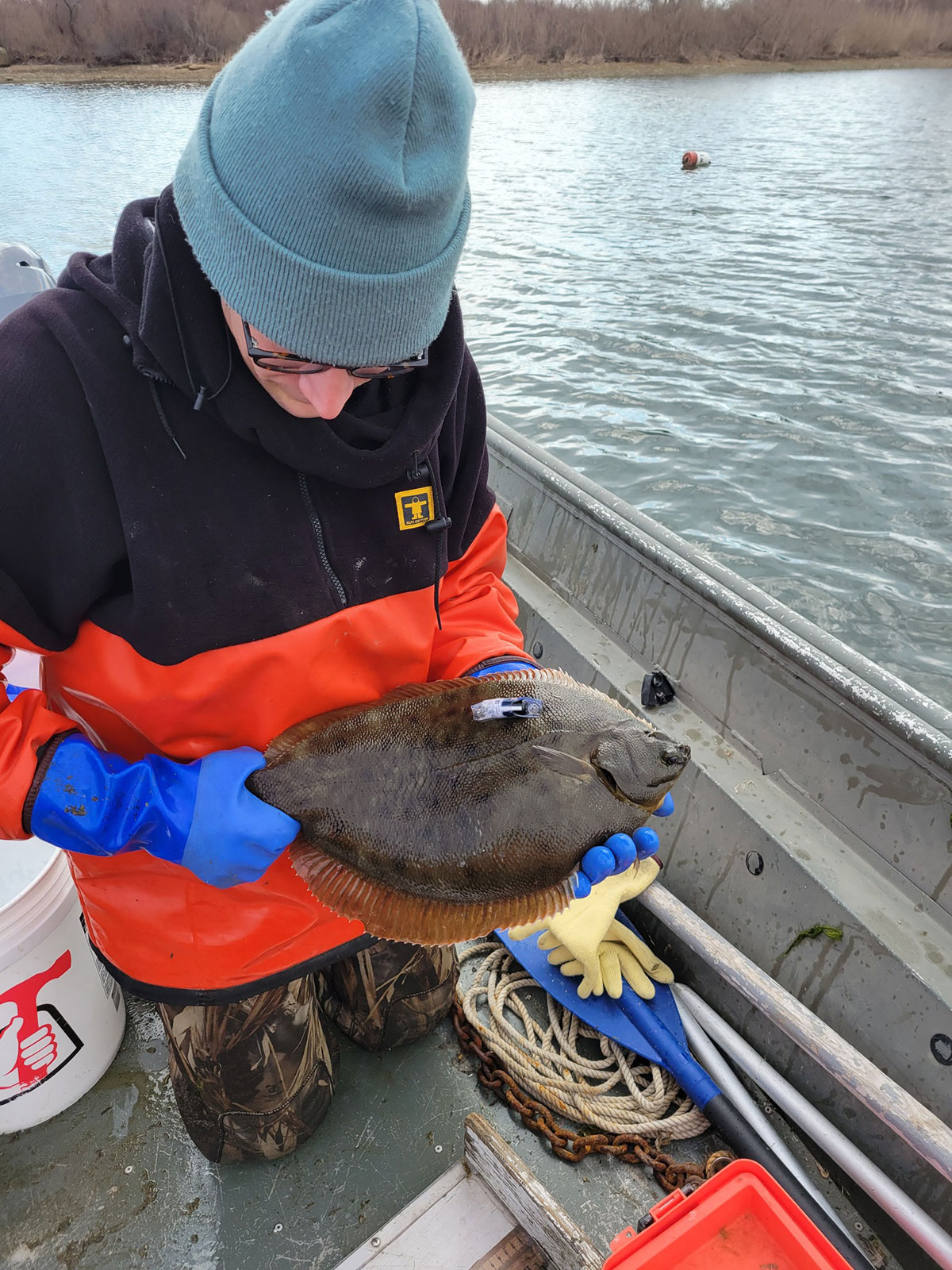DEM’s Division of Marine Fisheries (DMF) conducts a variety of field surveys throughout the year to support its mission to manage and enhance Rhode Island’s marine resources and habitats through sound science, informed management decisions, and education. Today we are highlighting the winter flounder fyke net survey!
Once abundant throughout Rhode Island waters, the winter flounder population has declined from a combination of historical overfishing and changes in the ecosystem due to climate change. Winter flounder enter Narragansett Bay and south shore coastal pond systems in RI to spawn in the early part of winter and engage in spawning activity December through April annually.
Since 1999, DMF has monitored the population of spawning adult winter flounder in several coastal ponds of RI using a type of gear called a fyke net. Fyke nets are a passive fishing gear that serves as an excellent tool for sampling to assess fish populations that use shallow water habitats. One benefit of using a fyke net to sample fish is that the gear does not result in high mortality; the fish are typically returned to the water unharmed after biological information is collected.

Fyke nets are set close to the shore at fixed sampling locations in Point Judith Pond, Potter Pond, and Ninigret Pond, and the catch is collected every three to seven days. All winter flounder captured are measured, sexed, counted, and categorized to describe the spawning stage. Recreational and commercial legal sized winter flounder (12”) are tagged and when recaptured fish are reported, the citizen scientist receives a winter flounder hat! Beginning in the winter of 2022 a more advanced acoustic tagging method began in Ninigret Pond to track the movements of tagged winter flounder within the system.
Studies such as this one are especially useful when collected for a long period of time and enable fisheries biologists to fine-tune the management strategy for this commercially and recreationally important species. Learn more about the variety of important field surveys DMF conducts as part of their monitoring at https://dem.ri.gov/…/fisheries-science-research/surveys.




